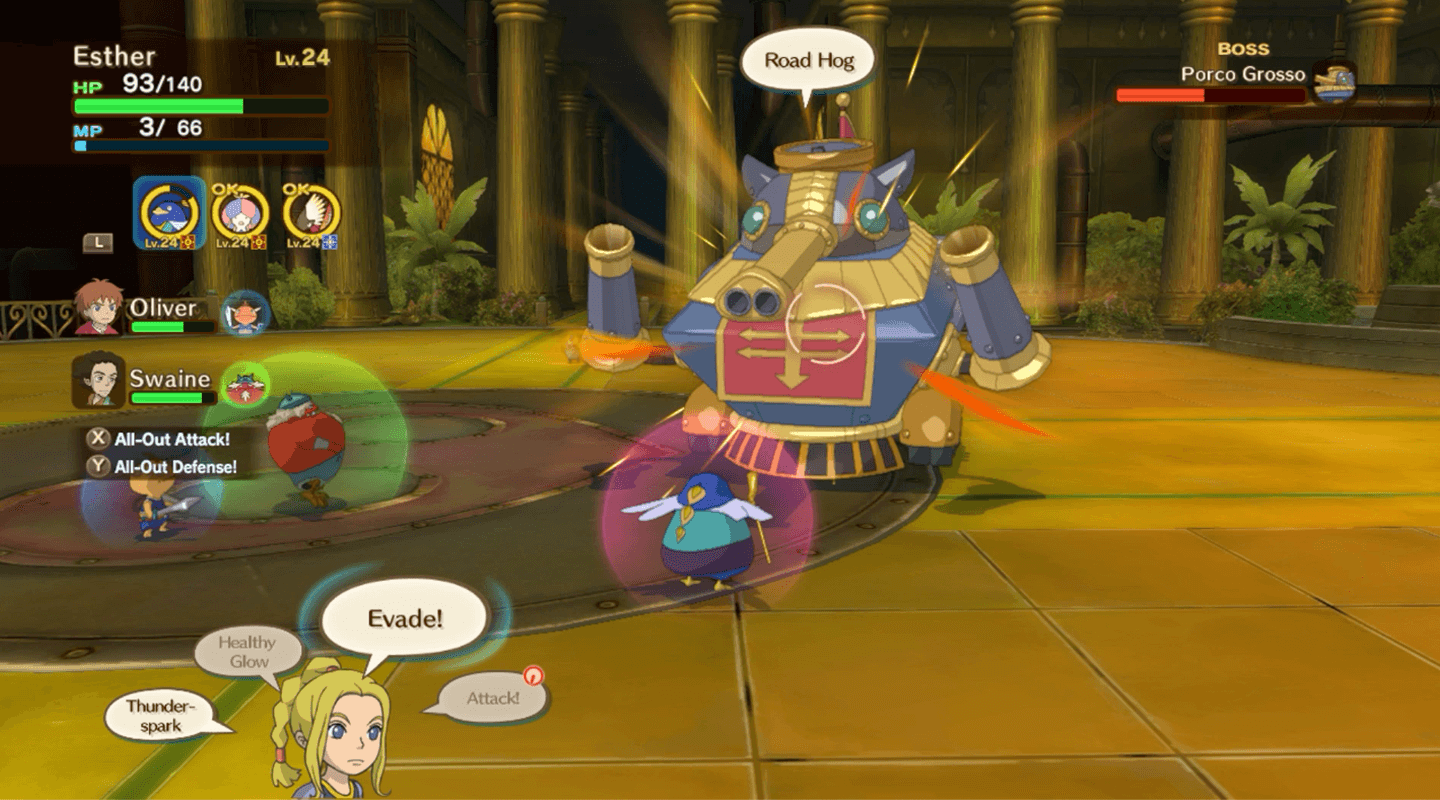Ni No Kuni: The Wrath of the White Witch is surely one of the most whimsical video game translations to study. Starting from the cockney accent of Drippy to the toponymy, this localization is coherent and well made in every aspect.

Ni No Kuni Overview
Level-5, a Japanese software house, made this wonderful interactive work that embraces Ghibli’s artistic standard by wrapping them in a video game with fairytale-like tones. Ni No Kumi was published in 2011 for PlayStation 3 and Nintendo DS and it was recently remastered for PlayStation 4 in 2019. In Ni No Kuni the player is called to follow in his adventure the young Oliver, a kid that is thrown in an alternative world to save his mother. Similar to other monster taming video games, Oliver will have to capture and train familiars to fight the evil forces.
An East-Londoner Drippy
In his adventure, Oliver will be helped by Drippy, the king of fairies that has very little of royal. In fact, in the Japanese release he and his folk speak Kansai’s dialect, which is tipically used in Japanese comedy. In the English version, to adapt this peculiar way of speaking the translators used cockney accent, which is typical of the eastern part of London. Instead, in the Italian adaption they used the typical accent of Rome’s suburbs, using fancy ways of censorship like “li mostracci tua!“. Some other choices are very interesting too, like the nickname “CryBoy” which was translated as “PiagnucolOliver”.
![]()
Familiar Names
Unlike other famous sagas with collectible creatures, like Pokémon, Ni No Kuni’s translator transcreated familiar names. For example, the Seed Sprite was translated as Nynfaseme in Italian. All the four hundreds and more creatures have an Italian name, just like their abilities that answer to more technical needs.
An Interesting Toponymy
One last point is about the names of cities and dungeons. In fact, they are inspired by nursery rhymes and puns. For example, the first city is called Ding Dong Dell from the famous nursery rhyme; the second city, Al Mamoon, is clearly inspired by an Arabian name mixed with bovine sounds.





